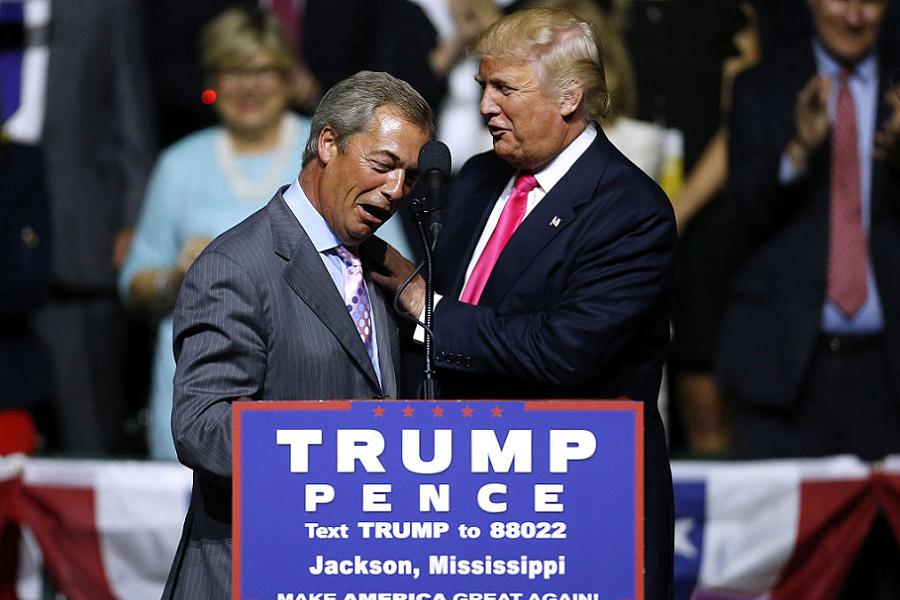Europe Sneezes; America Catches Cold

Jonathan Bachman/Getty ImagesDonald Trump greets United Kingdom Independence Party leader Nigel Farage during a campaign rally at the Mississippi Coliseum on August 24, 2016 in Jackson, Mississippi.
The United States is of course not immune to the ideological ferment across the Atlantic.
Though the American political system makes third-party politics ineffective, preventing the rise of a UKIP-style populist party, both mainstream parties are vulnerable to capture by any sufficiently energetic interest. Thus it was that the Evangelical Christian and economic conservative GOP presidential candidates found themselves blown out of the water by an openly nationalist Donald Trump.
As the nominee, Trump ran on a platform that could have been written by Geert Wilders – anti-immigration, hostile to Islam, economically protectionist, and even anti-EU. Thus it’s hardly surprising that former UKIP leader Nigel Farage flew to Mississippi to meet candidate Trump and encourage American voters to oppose Hillary Clinton in the election.
Trump himself had previously visited Scotland and expressed approval of the Brexit vote, though Scotland had generally voted against the measure.
Nevertheless, the alliance between nationalist parties has now crossed the ocean and found support in one of America’s main political parties. Where it goes from there – for the United States and for Europe – remains to be seen.
Next, allow this alt-right explainer to tell you everything you need to know about the movement that’s taking American politics by storm. Then, see which words joined “fascism” in tallying markedly increased online dictionary searches following Donald Trump’s presidential victory.





